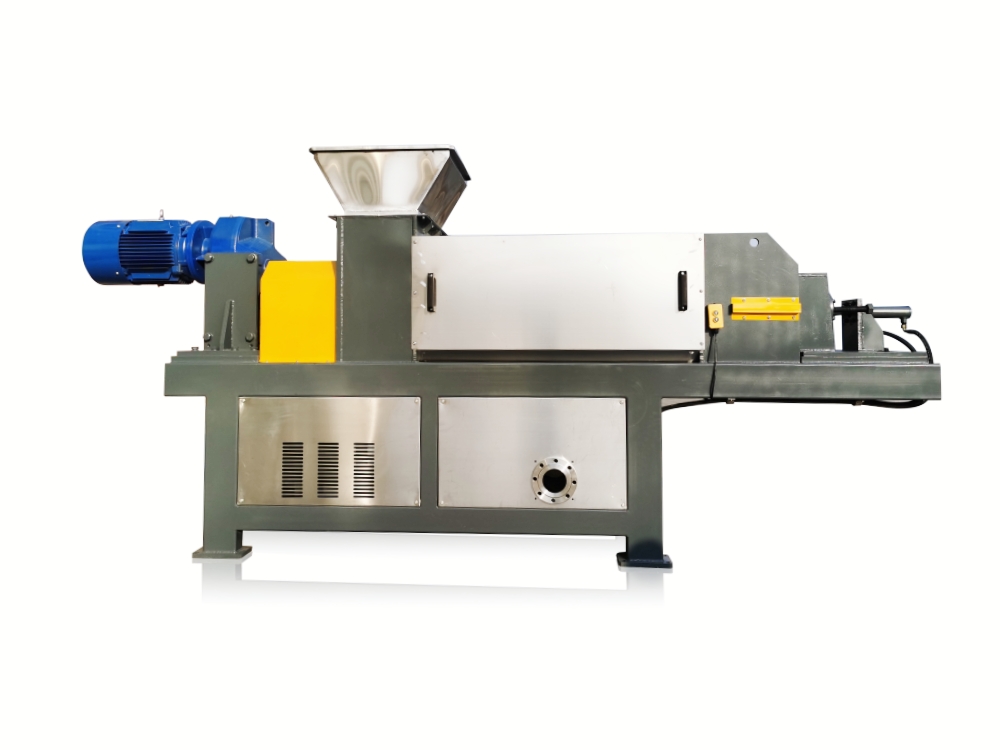
Introduction:
Organic waste management is a critical aspect of sustainable practices, and the utilization of advanced technologies has become increasingly important. One such technology that has gained prominence is the Organic Waste Dewatering Screw Press. This innovative equipment offers several advantages in the process of dewatering organic waste, contributing to efficient waste management and environmental sustainability.
Advantages:
High Dewatering Efficiency:
The Organic Waste Dewatering Screw Press excels in efficiently separating liquid from solid organic waste. Its specialized design allows for a high dewatering rate, reducing the moisture content in the waste material to a significant extent. This results in a more concentrated and manageable residue.
Cost-Effectiveness:
Compared to traditional dewatering methods, the screw press proves to be a cost-effective solution. Its automated operation requires minimal manual intervention, leading to lower labor costs. Additionally, the reduction in waste volume facilitates easier transportation and disposal, further reducing overall operational expenses.
Energy Efficiency:
The screw press is designed to operate with energy efficiency in mind. Its continuous screw mechanism requires less power compared to some alternative technologies. This not only contributes to cost savings but also aligns with the broader goal of minimizing the environmental impact of waste management processes.
Versatility in Waste Types:
One notable advantage of the screw press is its ability to handle various types of organic waste. Whether it be food waste, agricultural residues, or wastewater sludge, the equipment adapts to different materials, making it a versatile solution for a range of industries.
Compact Design and Space Efficiency:
The compact design of the screw press allows for easy integration into existing waste treatment facilities. Its space-efficient nature is particularly beneficial in situations where available space is limited. The equipment's small footprint is an advantage for urban areas with restricted land resources.
Odor Control:
The dewatering process in the screw press aids in minimizing odors associated with decomposing organic waste. By reducing the moisture content, the growth of odor-producing microorganisms is inhibited, contributing to a more pleasant working environment and addressing concerns related to community nuisance.
Minimal Environmental Impact:
Employing the Organic Waste Dewatering Screw Press aligns with sustainability goals by minimizing the environmental impact of waste management. The reduction in waste volume not only facilitates easier disposal but also lessens the carbon footprint associated with transportation and landfilling.
Conclusion:
The adoption of Organic Waste Dewatering Screw Press technology presents a multitude of advantages in the realm of organic waste management. From increased dewatering efficiency to cost-effectiveness and versatility, this innovative solution stands as a promising tool in promoting sustainable practices and addressing the challenges posed by organic waste. As technology continues to evolve, the screw press serves as a testament to the ongoing commitment to finding effective and eco-friendly solutions for waste management.

 TEL:+86 15336363999
TEL:+86 15336363999
 WeChat:gongchris1111
WeChat:gongchris1111
 ADD:Fangzi District, Weifang City, Shandong Province, China
ADD:Fangzi District, Weifang City, Shandong Province, China